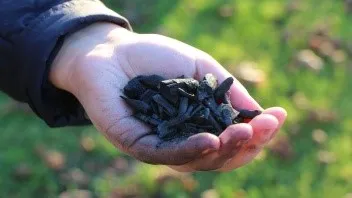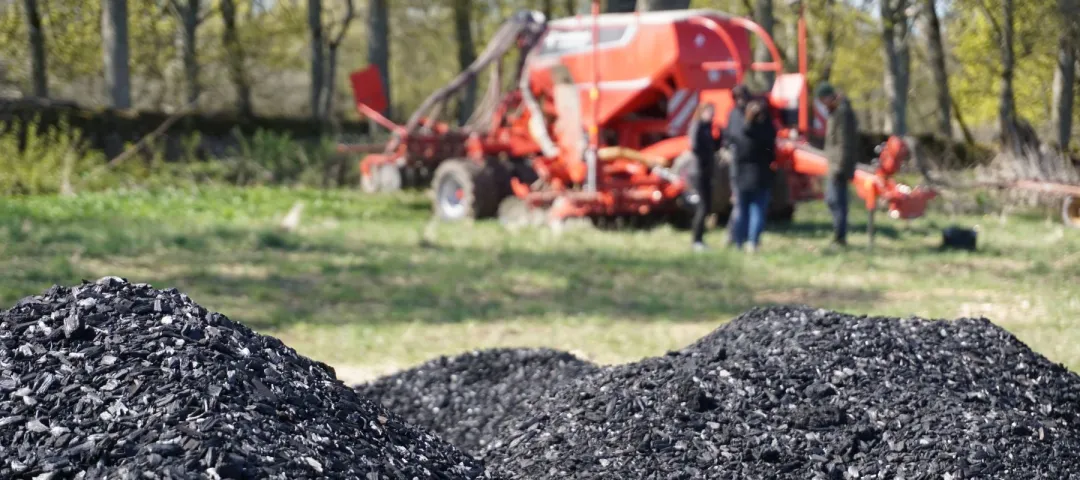Summary
The Swedish EIP-AGRI OG ‘Carbon Credits with Biochar’ turns climate challenges into bioeconomic opportunities. They build a market where farmers earn for storing carbon in soil using biochar—a stable carbon form from forest residues. The project blends technical, ecological, and market approaches to create a certified carbon credit system.

Topics
The Swedish EIP-AGRI Operational Group ‘Carbon Credits with Biochar’ is set to transform a pressing climate challenge into a bioeconomic opportunity.
Project manager Cecilia Hermansson explains: ‘We want to create a functioning market where farmers are financially rewarded for storing carbon in soil using biochar, a stable form of carbon made from - for example - forest residues that can store carbon for centuries’.
The project combines technical, ecological, and market solutions to develop a certified and verifiable carbon credit system. By doing so, it connects forest biomass valorisation with climate restoration and sustainable farming practices.
This EIP-AGRI Operational Group is pioneering a certification scheme for carbon credits using biochar. Cecilia Hermansson explains: ‘We aim to establish a certified and viable national certification standard for biochar-based sinks, allowing for compensation to foresters and farmers for sequestering carbon in soils. At the same time, a verified system allows companies to purchase for these local, transparent, and long-term credits’. This creates a link between forest biomass utilisation, climate mitigation, and sustainable forestry and agriculture.
“We noticed a growing demand for carbon sinks and carbon credits, as a more permanent alternative to traditional carbon offsets. Biochar-based carbon sinks can remain in the soil for thousands of years. We believed there was potential for farmers to sell carbon sink credits to companies looking to lower their climate footprint,” says Cecilia Hermansson.
The EIP-AGRI Operational Group is launching the carbon credit system commercially and continues to refine and develop the certification standard. This establishment of a national certification standard involves the development of a carbon credit calculation tool, initially designed for forest residue biomass but also adaptable to other types of biomass.
Farmers and foresters use a carbon calculation tool to enter data and estimate CO2 sinks, which can then become verified carbon credits. According to Cecilia it is important to use the biochar in soil first. This helps to calculate how big the carbon sink became and thereby determine how many carbon credits you can sell. This is essential because at the final stage of using the biochar in soil, you usually emit some CO2 from using fossil fuels for transportation or on application.
These carbon credits are checked by an independent third party. Once approved they are registered online using blockchain technology and are digitally tracked. To use the credits, the buyer must make them unavailable to others. A certificate showing the number of retired credits is then issued.
The Operational Group is open to scale the model both across Sweden and internationally, thereby opening up access to emerging climate markets and setting a precedent for climate-smart forestry across Europe. “We want to promote policy alignment and secure funding to support the broader adoption of biocarbon systems in forestry and agriculture. This will ensure more foresters and farmers across Europe getting rewarded for keeping our soils healthy while promoting a valuable climate solution”, concludes Cecilia.
